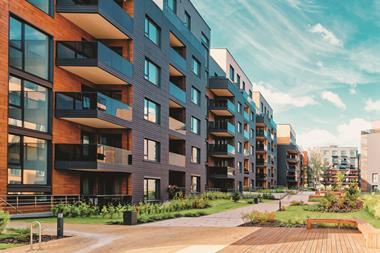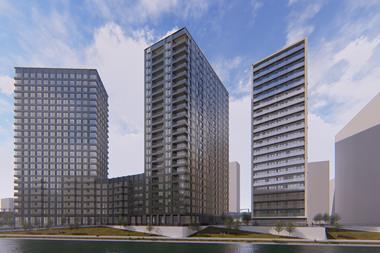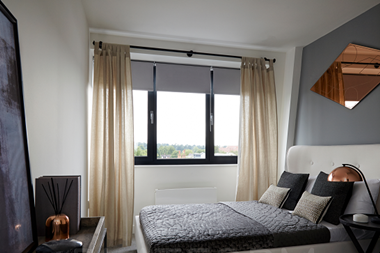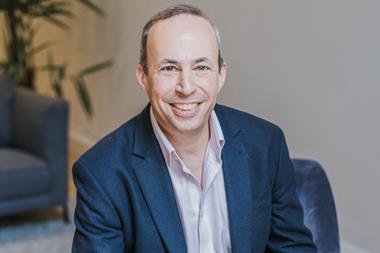Build-to-rent (BTR) is here to stay, but operators and investors must look at customers as their priority.

The BTR sector is still a relatively young sector, but in the face of a global pandemic, BTR operators are now realising that you need to be flexible at the snap of a finger, listen to your customer needs and then be able to shift quickly.
Covid-19 has shown this sector to be a real community. Not only have BTR operators worked incredibly hard to support their residents, they have completely pivoted on how they operate, going from having lots of feet on the street with people around their development all the time, to everything being done online. I’ve been amazed at how they have engaged and communicated with their residents.
What has also been impressive is the way they have shared their experiences with one another. There is really quite a bit of steel behind the sector, in terms of how operators have shared information, how they are learning and how quickly they have been able to respond. It is a real credit to the sector, especially in what is seen as a pretty conservative, slow-moving part of the market.
Investors are beginning to see this market’s buoyancy and it’s an opportunity to attract more investment. It is only a matter of time before we see invigorated interest from pension funds and sovereign wealth funds
It’s too early to say how resilient the BTR sector will be in the months and quarters following the outbreak, but for a real estate investor right now, it’s massively attractive because of its relatively reliable rent collection. In residential, people are still able to pay their rent because of the furlough scheme. BTR landlords have, of course, been affected – they’re down about 2% – but the difference compared to the commercial real estate or the flexible office sectors is off the charts.
While not wanting to be the merchant of doom when it comes to other sectors, investors are beginning to see this market’s buoyancy and it is an opportunity to attract more investment in the sector. It is only a matter of time before we see invigorated interest from pension funds and sovereign wealth funds wanting to invest in this market.
Going tech-savvy
As that starts to happen, it is crucial the BTR players have the right technology in place. The real estate industry pays far too much rhetoric around technology and has done for a long time – we always get excited about the next sexy PropTech product. But the pandemic has shown that technology is not just sexy. It is not something that you should spend ages trying to implement and working out how to do it. Technology is absolutely fundamental to the everyday experience of the resident.
Some people were maybe a little bit cynical about building technology into their offering, while some I’m sure implemented it thinking no one would use it, but all of a sudden over the past few weeks it has been the only thing we can use. The only way we can sign a lease has been online. The only way we can raise our maintenance requests and deal with similar matters has been through an app. In the past three months, there has been no purely human, non-tech way of doing these things. Operators who already had that technology in place have been pleasantly surprised how easy it has been for people to use and their ratings haven’t suffered at all.

The key to making it work is that the service you provide with technology has to be as good as the usual human service and absolutely focused on what the residents want and need. Rather than obsessing over the things you think matter, ask yourself what do residents really need the app for, so what does it need to be able to do? This is where the focus of operators should be.
If I was a resident, I would expect that information and functionality to be at my fingertips. So if you haven’t got your unit listed through an app, or they can’t sign up on mobile, the sector is going to progress much slower.
At Yardi, we provide software to manage multi-family or BTR developments and you only have to look at the ratings on our tenant app on the App store to see that, for residents around the world, we bring the experience and we provide what is important to the user. The customer doesn’t care about the bells and whistles and all the sexy add-ons. They just want to use something functional – but if it looks good and is a bit sexy, then that’s a plus.
What coronavirus has shown is that those people who haven’t invested in modern technology need to. They need to implement an integrated approach to technology and the real change will come.
Student accommodation/ emerging players
There are emerging opportunities in other residential markets too. For example, there is a growing parallel between the student accommodation and BTR sectors, in that residents go on a similar journey to find accommodation that has all the amenities, modern technology and a sense of community.
Some of the student accommodation brands are becoming quite strong as they’re synonymous with providing great service. The operators have the infrastructure and the experience, they just probably need to adapt their systems to be able to keep up with customer demands for technology and build on the average customer stay.
Duty of care
But in any sector, it is the responsibility of the developer, which could be the investor or the operator, to know their customer base really well and to interpret their needs and know their market.
My kids are in their early 20s and at university. One has just graduated and is full of ideas and things they want to do, and I keep saying: “That’s great. Go and do it.”
I would say the same to investors eyeing the BTR sector and operators looking to harness technology in their developments. What are you waiting for?

About Yardi
Yardi develops and supports industry-leading investment and property management software for all types and sizes of real estate companies. Established in 1984, Yardi is based in Santa Barbara, California, and services clients worldwide from offices in the UK, Europe, Australia, Asia, the Middle East and North America. For more information, visit yardi.co.uk.






























No comments yet